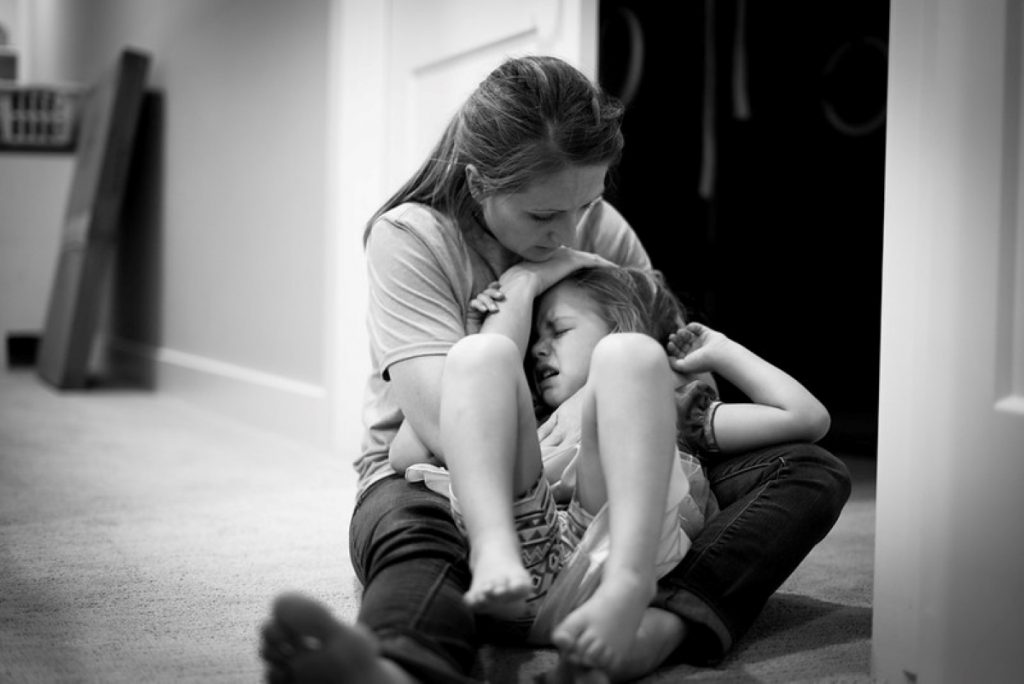
Recent events have given parents a whole new slew of issues to deal with concerning their children.
There are all the new school policies to contend with or virtual schooling, trying to limit screen time when the entire family is home 24/7, and learning to entertain multiple children at your feet during a Zoom meeting for work.
In the chaos of our beautiful lives, there is a key aspect of our child’s well-being that often gets ignored – and it may be the most important one of all!
Being at home more gives parents high expectations on all the tasks they want to complete with all the new “free time.”
However, the truth of parenthood becomes evident very quickly – raising children is a full-time job.
So put learning a new language on the backburner and instead take this time together to invest in your child’s mental health.
Change is hard on adults, so you can only imagine what a child goes through when their world is turned upside-down.
So try using these 5 fun and effective ways to strengthen your child’s mental health, giving them the ability to see the blessings of the day.
- Create a “calming corner”
Constant stimulation from sibling rivalry, school, and the noise of a family all trying to work independently in the same space can be taxing on the mind.
When you see your child becoming irritable or acting out, try taking them to a calming corner you created.
This alternative to a “time-out” can have a reading pillow, books, simple toys that work on problem solving, a few art supplies, and a “busy” book.
You will likely find that giving your child this little escape allows their mind to rest and recharge, giving them the focus and energy needed to continue the day in an appropriate manner.
- Address needs during tantrums
Every parent has had to deal with the dreaded temper-tantrum.
Whether it begins after getting served milk over juice or when grandma goes back home after a long visit, the source is the same – an inability to express their feelings in a productive way.
Café Mom recommends “validating the little one’s emotions in that moment and being mindful of the child’s needs as the tantrum is happening.”
This is all easier said than done. But instead of doing what you can to make the madness stop, which is a natural reaction, let the child know you are aware they are upset and label the feelings and offer support.
You can say, “I know that you are really missing grandma right now because it was so fun having her here to play with these past couple weeks, but she will visit again next year, and we can video chat with her as soon as she gets home. May I give you a hug to help you feel better?”
- See them through the tough days
Not all children are naturals at everything they try and that can be extremely frustrating for them.
A teacher on TikTok informs viewers that when one of her students dumps out all the crayons, she sees this as a sign of frustration and an opportunity to remind the student that they can complete a tough assignment with her help.
With that in mind, an outburst by your grade-school child may be because they need help with learning a new and difficult task.
Keep your eyes peeled for opportunities to help your child learn new and difficult challenges – from long division to making new friends.
- Praise your child often
Raising Children advises praising children using “descriptive” words for things they put “effort into.”
Instead of saying, “You did a good job eating all your breakfast,” you can say, “I appreciate you getting up on time even though you were tired and putting your dishes in the sink when you were finished.”
Being specific with your praise and the actions that deserve it inspires the child to continue the desired behavior and makes them feel accomplished and proud.
- Teach them feelings are your own responsibility
Ryan Allen, a therapist offering advice on TikTok, recommends never saying that your child has “made” you angry or any other emotion.
Own every emotion you express by saying “I feel” statements.
This lets the child not feel like they are to blame or that they must hold responsibility for the feelings of others.
Don’t take the mental health of your child for granted.
Just because they seem fine now doesn’t mean they will never be met with emotional challenges.
Supporting their mental health throughout development allows them to be ready to face whatever comes their way.
Being there for your whole child – mind, body, and soul – will raise a confident and well-rounded individual who is not shaken by the inevitable waves of societal affliction.
